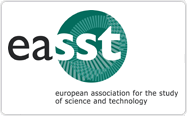Metrics Producing Science
The Evaluative Way in the Emergence of US Translational Science
DOI:
https://doi.org/10.23987/sts.145702Abstract
Translational science emerged in the 2000s, aiming to transform biomedicine by fostering strategies to move innovations more efficiently from basic research, through trials, to implementation. One aspect of translational science that has received limited critical attention is the development of evaluation practices that aim to measure its impact on biomedical innovation and society. In this article, we describe five periods in the evaluation of translational science funded by the US National Institutes of Health. Rather than simply measuring translational science’s effects, we show that evaluation strategies have structured the field’s emergence, produced representations of it for external actors, and helped legitimize it as a science worthy of public investment. We term this specific mode of co-production between science and metrics “the evaluative way,” and argue for the concept’s utility for studying sciences that emerged in the late 20th and early 21st centuries, when evaluation became increasingly central to science policy.
Downloads
Published
Issue
Section
License
Copyright (c) 2025 Stephen Molldrem, Jacob Moses, Elise Smith, Emma Tumilty, Jeffrey Farroni

This work is licensed under a Creative Commons Attribution 4.0 International License.





